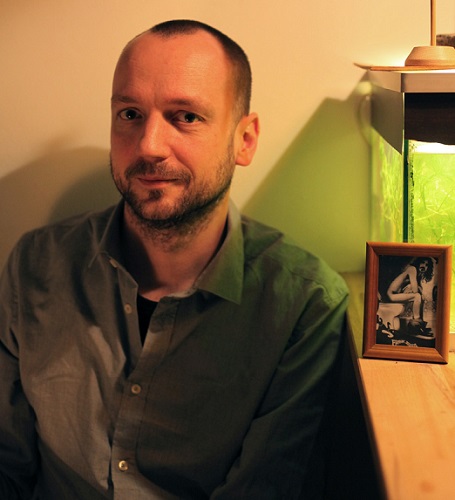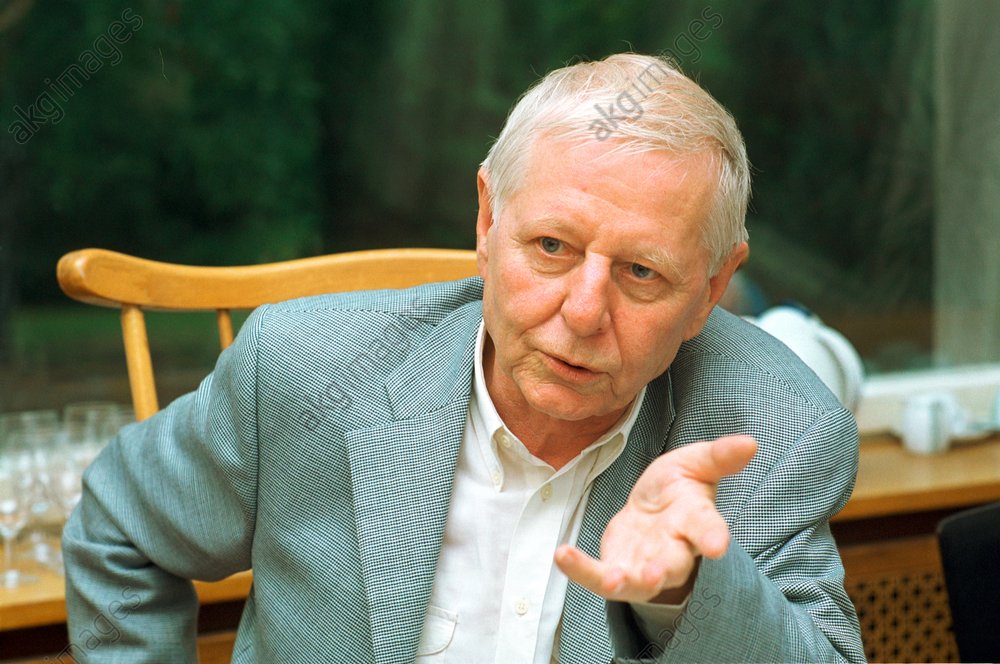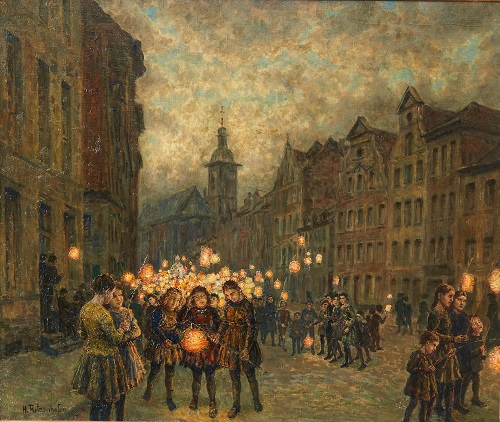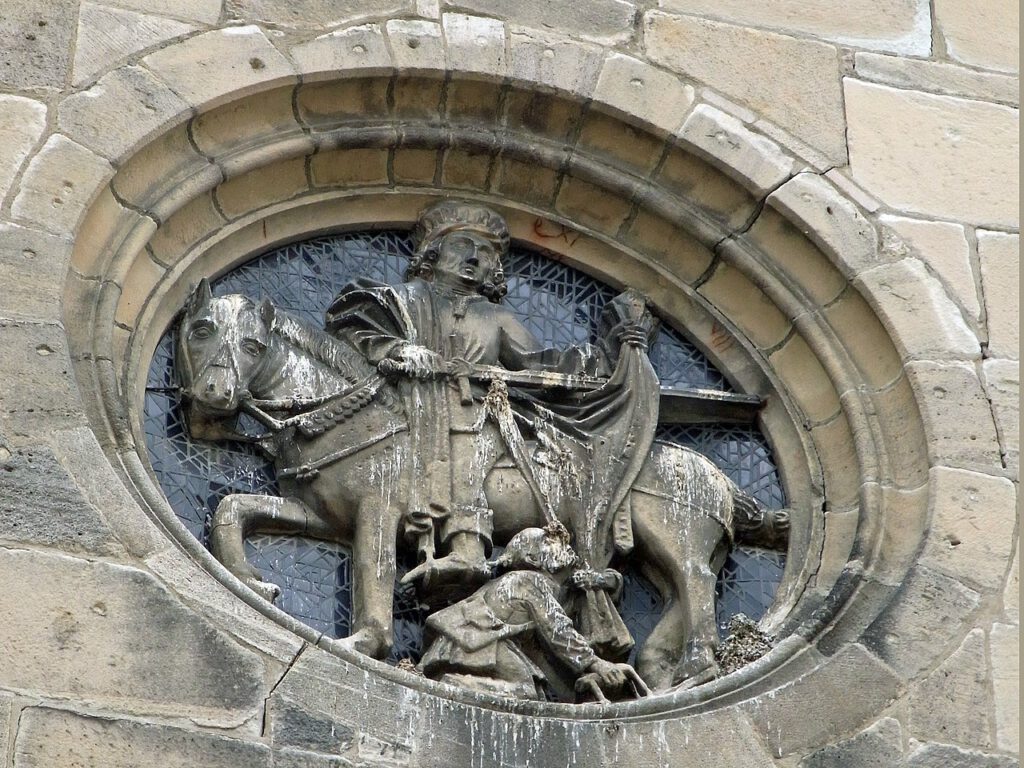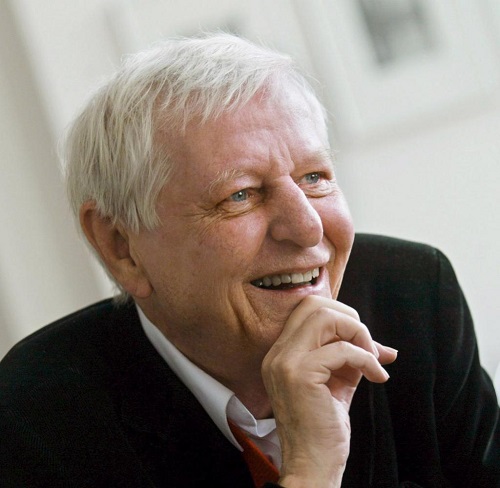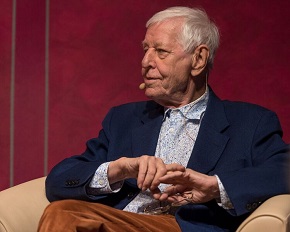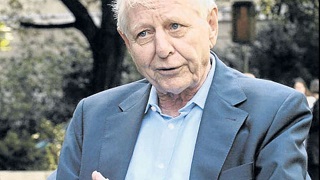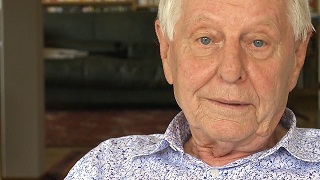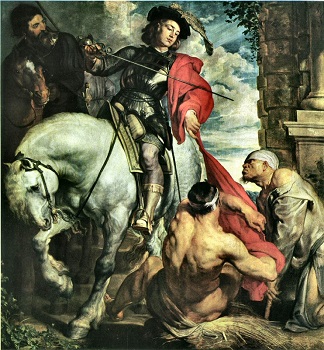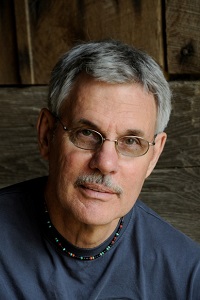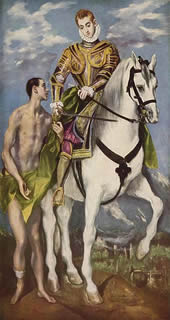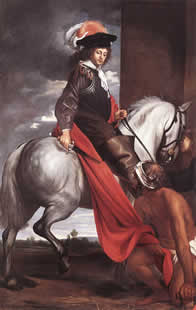De Duitse dichter en schrijver Hans Magnus Enzensberger werd geboren op 11 november 1929 in Kaufbeuren. Zie ook alle tags voor Hans Magnus Enzensberger op dit blog.
Creditur
Schon das schiere Nichts
hat es in sich.
Bauchschmerzen
für Metaphysiker.
Die Null zu erfinden
war kein Zuckerlecken.
Als dann auch noch
irgendein Inder
auf die Idee kam, etwas
könne weniger sein als nichts,
streikten die Griechen.
Auch den Gottesgelehrten
war nicht wohl dabei.
Blendwerk, hieß es,
eine Versuchung des Teufels.
Das sollen natürliche Zahlen sein,
riefen die Zweifler,
minus eins, minus eine Milliarde?
Nur wer Geld hatte,
und das waren die wenigsten,
der hatte keine Angst:
Schulden, Abschreibungen,
doppelte Buchführung.
Die Welt wurde abgezinst.
Die Arithmetik – ein Füllhorn.
Wir haben alle Kredit,
sagten die Banker.
Eine Sache des Glaubens.
Seitdem wird immer größer,
was weniger ist als nichts.
Die Instrumente
Augenschere, Marknagel, Blasensprenger –
man hört es nicht gerne.
Selbst die Chirurgen hüten sich,
uns den Hohlmeißel vorzuführen,
das wäre zu hart, den Uteruslöffel,
das wäre nicht höflich, die Hirnspatel
und den Leberhaken. Erst, wenn es weh tut,
in der Notaufnahme, vertrauen wir uns
mit geschlossenen Augen der Penisklemme,
dem Blutschöpfer an. Ja, dann!
Gebenedeit, heißt es, jetzt auf einmal,
seid ihr, Vulvaspreizer und Knochenraspel,
unsre einzige Hoffnung,
kurz vor der letzten Ölung.
Vrije tijd
Grasmaaier, zondag,
die de seconden maait
en het gras.
Er groeit gras
over het dode gras
dat over de doden is gegroeid.
Wie dat horen kon!
De maaier dreunt,
overstemt
het schreiende gras.
De vrije tijd vreet zich vet.
Wij bijten geduldig
in het frisse gras.
Vertaald door René Smeets
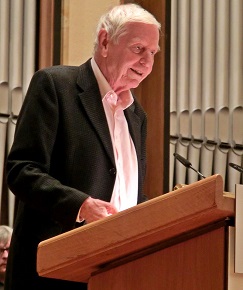
Hans Magnus Enzensberger (Kaufbeuren, 11 november 1929)
De Roemeense dichter en schrijver Mircea Dinescu werd geboren op 11 november 1950 in Slobozia. Zie ook alle tags voor Mircea Dinescu op dit blog.
The barbarians’ return
In the evening
when the Barbarians return from the West mounted on concepts,
sent as emissaries of huge salami factories,
don’t ask about their horses,
put out the fire
stuff your mouth with embers
fill your memory with ashes
and head for the Himalayas with your trumpet
cultivate avalanches
change your sex, name or Linnaean kingdom
mingle with a gaggle of geese
go honk-honk and seize
the moment – be an Eskimo
when the green ice-nerve in Antarctica
slowly relaxes
propose to the plump lascivious seal
lick honey from the federal administrator’s fingers
or simply stand meekly and listen to
the howl of the crude oil of the locomotive
giving birth in the middle of the field without a midwife
to a procession of tiny luminous creatures.
Nature’s democracy
In March dustbins explode
splattering the neorealist darkness
with flame-red cats.
The town boils below their greedy phosphorus
a kiss smelling saccharine like brimstone,
pregnant women might suddenly flow into the room
but for the heavy sandbags
grumbling in front of the TV
blowing into the eternal soup.
Swarms of butterflies slip under girls’ skirts
and my hand falls heavy with pollen.
A tiny thermoelectric generator installed in fools’ mouths
now reaches full productivity
(poor and lazy, I’m not the least afraid).
A child pisses on the church steeple
and God welcomes the warm jet
like a rheumatic heel that needs soothing.
A rotten potato tossed on the empty plot of ground
shows its little green penis
like a sign of nature’s democracy.
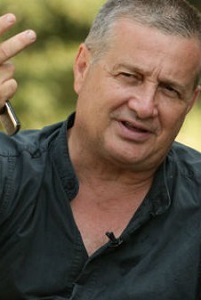
Mircea Dinescu (Slobozia, 11 november 1950)
De Mexicaanse dichter en schrijver Carlos Fuentes Macías werd geboren op 11 november 1928 in Panama-Stad. Carlos Fuentes overleed op de 15e mei van dit jaar. Zie ook alle tags voor Carlos Fuentes op dit blog.
Uit: The Years with Laura Diaz
“I got up early to take care of my business before the film team set up in front of Diego’s murals. It was 6 a.m. in the month of February. I expected darkness. I was ready for it. But its duration sapped my energy.
“If you want to do some shopping, if you want to go to a movie, the hotel limo can take you and pick you up,” they told me at the reception desk.
“But the center of town is only two blocks from here,” I answered, both surprised and annoyed.
“Then we can’t take any responsibility.” The receptionist gave me a practiced smile. His face wasn’t memorable.
If the guy only knew that I was going farther, much farther, than the center of town. Though I didn’t know it yet, I was going to reach the heart of this hell of desolation. Walking quickly, I left behind the cluster of skyscrapers arranged like a constellation of mirrors — a new medieval city protected against the attacks of barbarians — and it took me only ten or twelve blocks to get lost in a dark, burned-out wasteland of vacant lots pocked with scabs of garbage.
With each step I took — blindly, because it was still dark, because the only eye I had was my camera, because I was a modern Polyphemus with my right eye glued to the Leica’s viewfinder and my left eye closed, blind, with my left hand extended forward like a police dog, groping, tripping sometimes, other times sinking into something I could smell but not see — I was penetrating into a night that was not only persisting but being reborn. In Detroit, night was born from night.
I let the camera drop onto my chest for an instant, I felt the dull blow over my diaphragm — two diaphragms, mine and the Leica’s — and the sensation was repeated. What surrounded me was not the prolonged night of a winter dawn; it wasn’t, as my imagination would have me believe, a nascent darkness, disturbed companion of the day.
It was permanent darkness, the unexpected darkness of the city, its companion, its faithful mirror. All I had to do was turn right around and see myself in the center of a flat, gray lot, adorned here and there with puddles, fugitive paths traced by fearful feet, naked trees blacker than this landscape after a battle. In the distance, I could see spectral, broken-down Victorian houses with sagging roofs, crumbling chimneys, empty windows, bare porches, dilapidated doors, and, from time to time, the tender and immodest approach of a leafless tree to a grimy skylight. A rocking chair rocked, all by itself, creaking, reminding me, vaguely, of other times barely sensed in memory …”
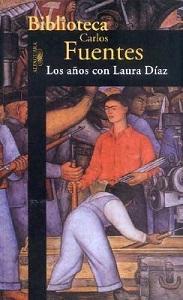
Carlos Fuentes (11 november 1928 – 15 mei 2012)
Cover Mexicaanse uitgave
De Turks-Nederlandse schrijfster Nilgün Yerli werd op 11 november 1969 geboren in Kirsehir,Turkije. Zie ook allle tags voor Nilgün Yerli op dit blog.
Uit: De garnalenpelster
“Mijn moeder zei: ‘Ik begrijp dat je in de war bent, als we nu in Turkije woonden dan leefde je in één soort geloof en wanneer er maar één is van iets dan is er geen verwarring, maar zodra je kunt vergelijken komt er verwarring en een tijd om te kiezen.’
‘Moet ik dan kiezen voor een geloof?’
‘Kijk, er zijn vele geloven, maar er is maar één God, en dat zorgt er in ieder geval voor dat je niet verward daarover raakt.’
‘Maar als er maar één god is, waarom zijn er dan zoveel geloven?’
‘Er zijn toch ook zoveel soorten mensen.’
‘Ja, en dus?’
‘De kern en het uitgangspunt van bijna alle geloven is reinheid, puurheid, eerlijkheid, behulpzaamheid en dat er een God is. Maar ieder geloof heeft zijn eigen regels. Zo zijn er bij de islam vijf geboden: een bezoek naar Mekka, zekat: hulp aan de armen, vijf maal daags bidden, vasten in de vastenmaand en geloven in een God de almachtige.’
‘Ja, en geen varkensvlees eten, en vrouwen moeten een hoofddoek op, en mannen moeten besneden worden, en vrouwen mogen niks, en geen alcohol drinken, je zegt wel dat er maar vijf geboden zijn maar er zijn honderden andere regels die er nog bijkomen.’
Mijn moeder glimlachte, en als zij glimlachte dan leek dat een zon die scheen op een grauwe dag. […] Zij wist alles in mijn ogen.
‘Luister, je bent nog maar tien jaar. Toen ik zo oud was als jij, had ik deze vragen ook en ik ging naar mijn vader. […] Om te beginnen hoefde ik helemaal geen hoofddoek op als ik dat niet wilde, daar kwam bij, dat het alles met de interpretatie van de koran had te maken.’
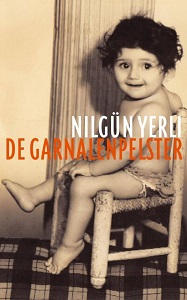
Nilgün Yerli (Kirsehir, 11 november 1969)
Cover
De Italiaanse schrijver Luigi Malerba werd geboren op 11 november 1927 in Berceto. Zie ook alle tags voor Luigi Malerba op dit blog.
Uit: Uit het dagboek van een dromer (Vertaald door F.J.P. Verbrugge)
“Rome, 10-11 januari
Tegen de heuvel is iets ergs gebeurd, een spoorwegongeluk misschien. Midden door dorre takken heen klim ik omhoog, met grote moeite. Er liggen lichamen op de grond, verminkt, verbrand, even beneden de spoorlijn waarop nu in zijn eentje een goederenwagon aan komt rijden die stopt op de plaats van het ongeluk. De wagon lijkt onecht, van karton. Uit de warhoop van verminkte lichamen richten zijn twee gestalten op: een vrouw, in het donker gekleed, mager, jong van lichaam, met een verbrande stomp op de plaats van het hoofd; en zij verwijdert zich samen met een man, eveneens met een hoofd dat veranderd is in een vormeloze klomp kool. Ik identificeer me met de man, ik bèn de man met het verkoolde hoofd, en ik spoor de vrouw aan om naar een plaats niet veraf te gaan waar iets aan de hand is wat ons aangaat. De weg is niet lang, maar zwaar en ongewis door de toestand van de twee, die struikelen over de stenen, elkaar beurtelings op de been houden terwijl ze zigzag voortgaan, en het pad, dat over woest terrein loopt, kwijtraken en weer terugvinden. Tenslotte komen de twee aan (wij komen aan) op een open plek, beschut door dicht en hoog struikgewas. De jonge vrouw zonder hoofd strekt zich uit in het gras, volkomen uitgeput. Ze ademt moeizaam, ze is duidelijk aan het einde van haar krachten. Nu komt er een onheilspellende figuur met een bijl in de hand, een soort groffe, ruige boerenkerel, en zonder een moment te verliezen haalt hij uit en slaat het blad van de bijl diep in de zij van de vrouw. Het probleem van het doden van de vrouw, een daad die niet gesteld had kunnen worden als de vrouw eerder gestorven was, lijkt opgelost. Helaas is het nu míjn beurt. Op dit punt word ik wakker.”
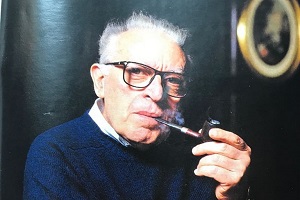
Luigi Malerba (11 november 1927 – 8 mei 2008)
De Amerikaanse dichter en essayist William Procter Matthews III werd geboren op 11 november 1942 in Cincinnati, Ohio. Zie ook alle tags voor William Matthews op dit blog.
The Bear at the Dump
Amidst the too much that we buy and throw
away and the far too much we wrap it in,
the bear found a few items of special
interest—a honeydew rind, a used tampon,
the bone from a leg of lamb. He’d rock back
lightly onto his rear paws and slash
open a plastic bag, and then his nose—
jammed almost with a surfeit of rank
and likely information, for he would pause—
and then his whole dowsing snout would
insinuate itself a little way
inside. By now he’d have hunched his weight
forward slightly, and then he’d snatch it back,
trailed by some tidbit in his teeth. He’d look
around. What a good boy am he.
The guardian of the dump was used
to this and not amused. “He’ll drag that shit
every which damn way,” he grumbled
who’d dozed and scraped a pit to keep that shit
where the town paid to contain it.
The others of us looked and looked. “City
folks like you don’t get to see this often,”
one year-round resident accused me.
Some winter I’ll bring him down to learn
to love a rat working a length of subway
track. “Nope,” I replied. Just then the bear
decamped for the woods with a marl of grease
and slather in his mouth and on his snout,
picking up speed, not cute (nor had he been
cute before, slavering with greed, his weight
all sunk to his seated rump and his nose stuck
up to sift the rich and fetid air, shaped
like a huge, furry pear), but richly
fed on the slow-simmering dump, and gone
into the bug-thick woods and anecdote.
Bedtime
Usually I stay up late, my time
alone. Tonight at 9o I can tell
I’m only awake long enough
to put my sons to bed.
When I start to turn off lights
the boys are puzzled. They’re used
to entering sleep by ceding to me
their hum and fizz, the way they give me
50¢ to hold so they can play
without money. I’m their night-light.
I’m the bread baked while they sleep.
And I can scarcely stand up, dry
in the mouth and dizzied
by fatigue. From our rooms
we call back and forth the worn
magic of our passwords and let one
another go. In the morning Sebastian
asks who was the last to fall
asleep and none of us cares or knows.
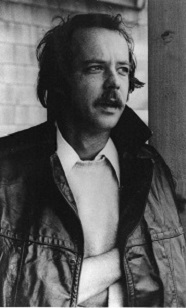
William Matthews (11 november 1942 – 12 november 1997)
Zie voor nog meer schrijvers van de 11e november ook mijn vorige blog van vandaag.
